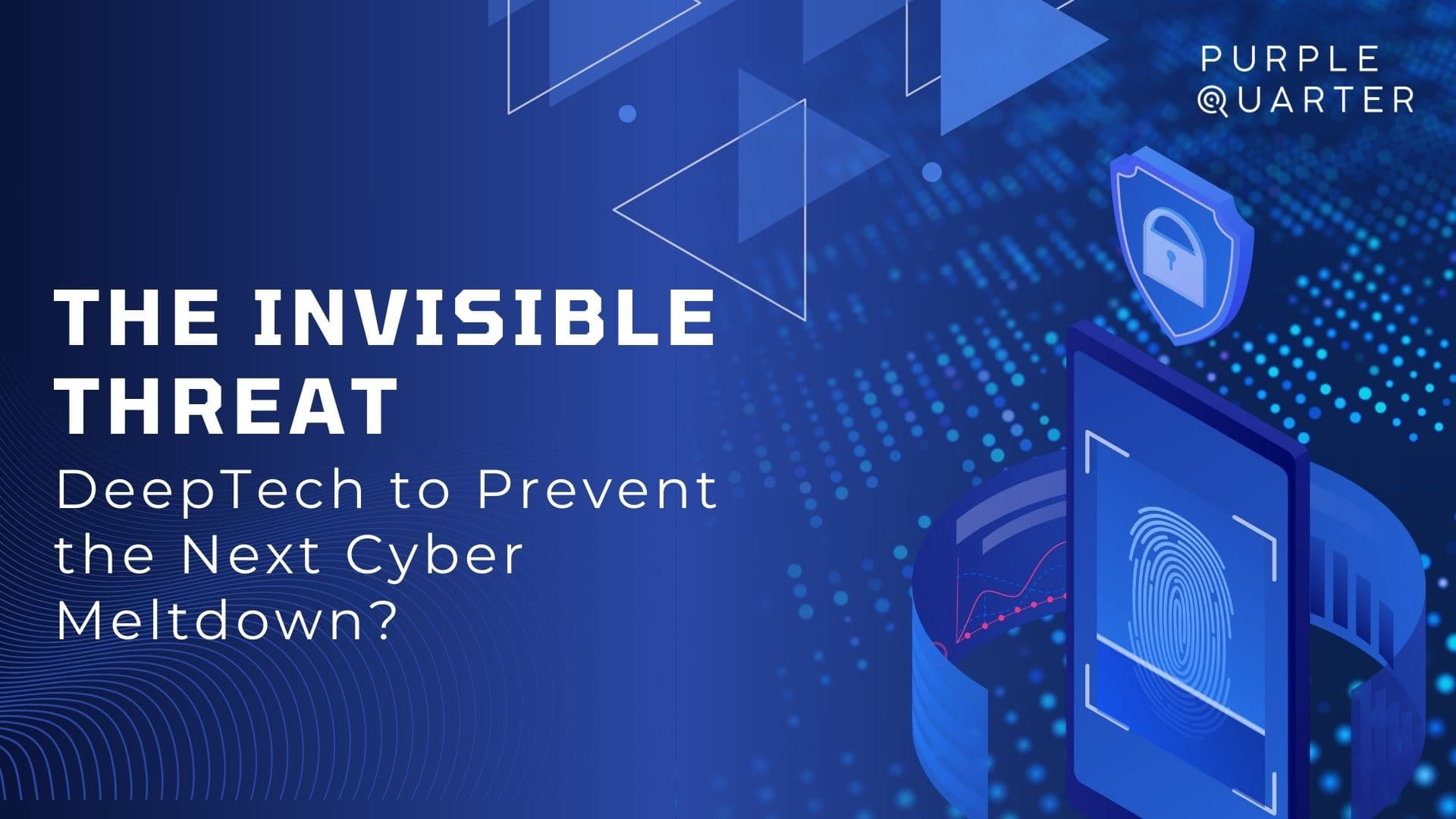
What if the most dangerous criminals never needed a weapon—just silent code infiltrating billion-dollar enterprises in seconds? AI-driven malware evades detection, deepfake scams dismantle trust, and quantum decryption breaks security. The real horror? Most breaches go unnoticed until it’s too late. Cyber threats aren’t just evolving—they’re accelerating beyond human response, while traditional security remains reactive. The most secure way forward—DeepTech
DeepTech Transforming Cybersecurity
DeepTech is leveraging AI to predict attacks, blockchain to secure data, and quantum-resistant encryption to withstand future cyber threats. These technologies don’t just defend against threats; they proactively anticipate and neutralize them before damage occurs.
Artificial Intelligence: The Crux of Modern Cybersecurity?
Cyberattacks today are stealthy, adaptive, and increasingly difficult to detect. AI transforms cybersecurity by analyzing vast datasets, identifying anomalies, and responding in real time. Financial institutions leverage AI-driven fraud detection, cutting fraud losses by up to 50%, reports IBM. AI-powered cloud security solutions monitor activity continuously, preventing breaches before they escalate. IBM’s 2024 Cost of a Data Breach Report found that AI-driven security reduces breach costs by an average of $3.05 million.
A real-world example is Darktrace, a cybersecurity firm that employs AI to autonomously detect and neutralize threats. Its AI continuously learns from network activity, identifying subtle patterns that indicate cyberattacks before they manifest. This technology has helped global enterprises stop ransomware attacks in real time, significantly reducing financial and reputational damages.
Blockchain: The Trust Layer in Cyber Defense
Beyond preventing attacks, cybersecurity must also ensure digital trust. Fraudulent transactions and identity theft often stem from compromised credentials. Blockchain offers a decentralized, tamper-proof system ideal for finance, identity management, and supply chains.
Banks and fintech firms increasingly use blockchain for secure identity verification, minimizing credential theft. JPMorgan Chase, for example, has integrated blockchain into its banking infrastructure through its Onyx platform, which enhances transaction security and reduces fraud risks. Supply chain security is another key area, with blockchain preventing counterfeiting through transparent, verifiable tracking. PwC estimates blockchain could contribute $1.76 trillion to the global economy by 2030 by enhancing digital trust.
Quantum Computing: The Next Cybersecurity Battlefield
Current encryption methods face an existential threat from quantum computing, which could render existing security protocols obsolete. Governments and enterprises are racing to develop quantum-resistant encryption to protect sensitive data.
Defence agencies are already testing quantum-safe encryption for classified communications. Tech giants like Google and IBM are actively developing post-quantum cryptographic algorithms. IBM, for instance, has introduced quantum-safe cryptography solutions into its cloud services, preparing businesses for the inevitable transition to quantum-resistant security. Meanwhile, the U.S. National Institute of Standards and Technology (NIST) has shortlisted post-quantum algorithms to replace vulnerable encryption standards. As quantum advancements accelerate, cybersecurity must fundamentally transform to stay ahead.

The Challenges of Implementing DeepTech in Cybersecurity
While DeepTech offers groundbreaking solutions, implementation hurdles remain. Regulatory restrictions complicate AI-driven security due to data privacy laws like GDPR and CCPA, limiting access to crucial threat intelligence. A 2024 PwC survey found that 47% of companies struggle with data governance, while the World Economic Forum reports that 81% of organizations face challenges integrating decentralized security models.
Transitioning to quantum-resistant encryption also requires substantial investment and standardization, with large-scale adoption expected to take 5-10 years. Furthermore, the cybersecurity talent gap slows progress, with (ISC)² reporting a global shortfall of 3.5 million skilled professionals. Overcoming these challenges is crucial to ensuring DeepTech’s full potential in cybersecurity.
Looking forward
Cybersecurity is no longer just about reacting to breaches; it’s about anticipating and neutralizing them before they occur. The old playbook of patching vulnerabilities and responding to attacks is obsolete. DeepTech is rewriting the rules—AI-driven security; predicts and prevents threats, blockchain fortifies digital trust, and quantum-resistant encryption safeguards the future.
Organizations as well as governments that hesitate to adopt these innovations risk falling behind in an increasingly hostile cyber landscape. The digital battleground is shifting, and only those prepared to evolve will survive. Cyber threats won’t wait—the time to act is now.


.jpg)